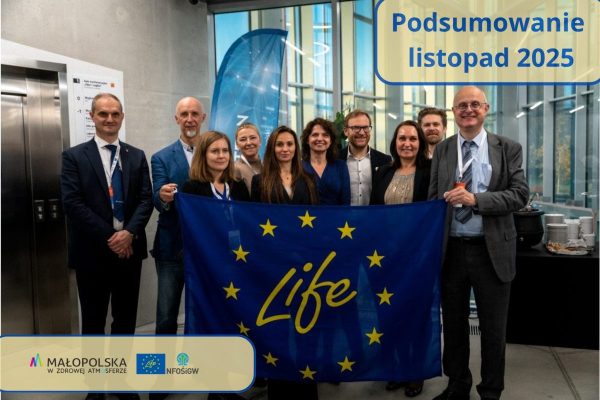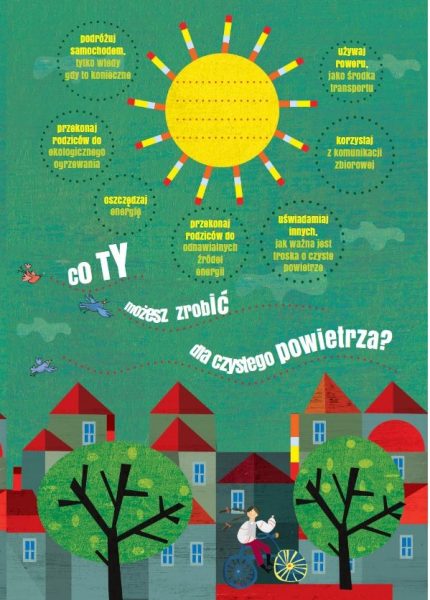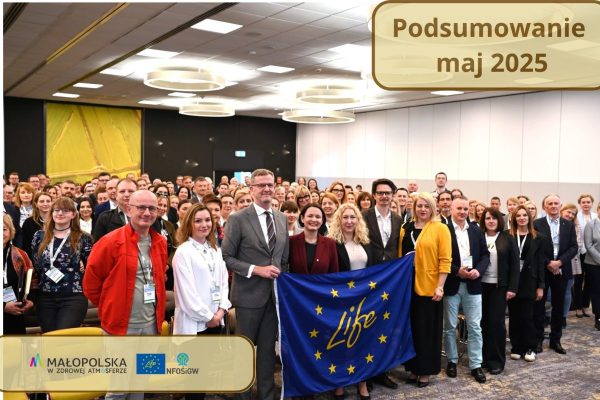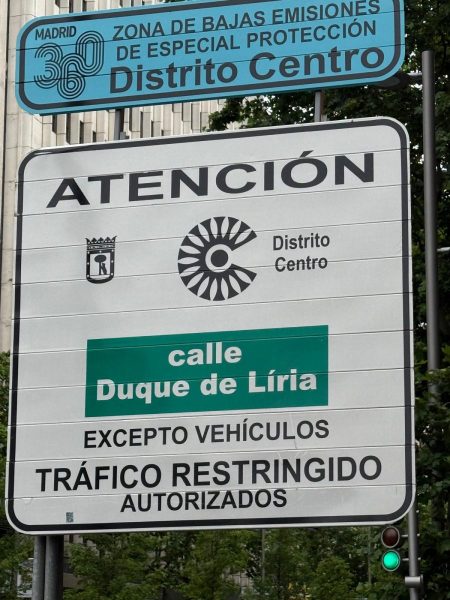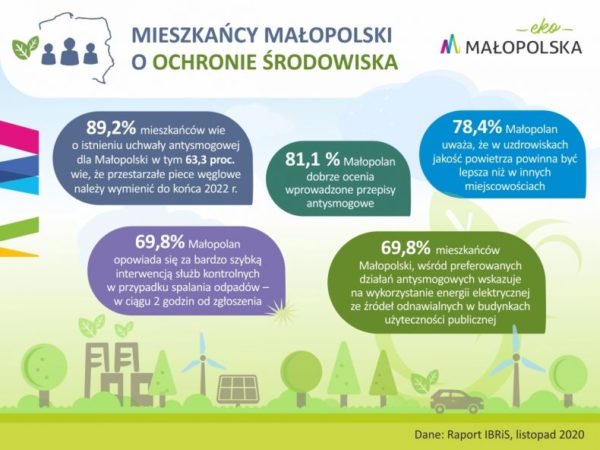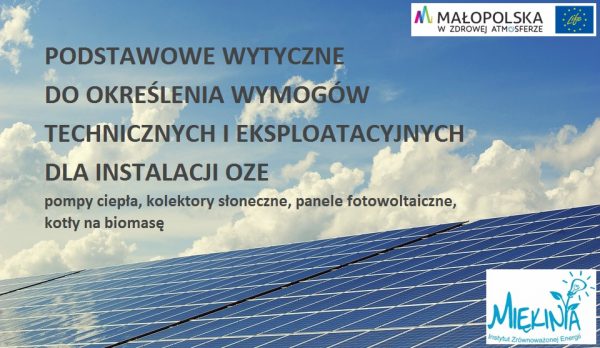Analysis of the variants of the anti-smog resolution for the Malopolska Region
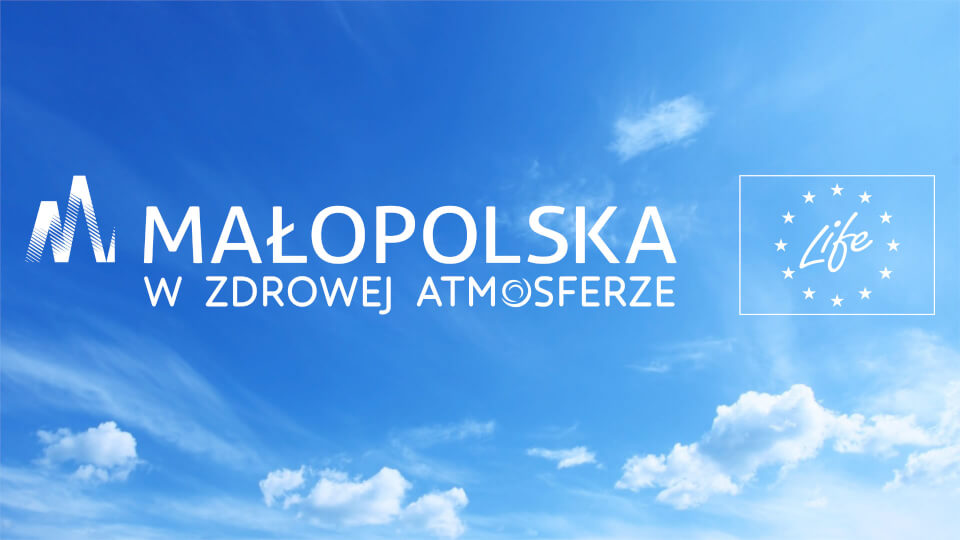
The development of the update of the Air Quality Plan for the Malopolska Region includes an analysis of the variants of the introduction of the anti-smog resolution for the Malopolska Region. It is a priority to stop the increasing number of new low emission sources. Currently, despite the replacement of approx. 4 000 coal boilers annually, at the same time, approx. 12 000 new sources that do not have to meet any emission standards are installed. The anti-smog resolution for the Malopolska Region can introduce an obligation for the new sources – already after the adoption of the resolution in 2017 to meet the requirements of class 5. At the same time, the burning of coal muds and floatation concentrates will be eliminated, and only dry, seasoned wood will be required for the wood to ensure cleaner and more efficient combustion. The regulation can also set the target year 2023 by which all non-class boilers should be replaced with Class 5 boilers. This solution will enable local resources of Polish coal and the wood to be utilized in modern and high-efficiency heating systems, thus enabling the Malopolska Region’s air quality standards meeting the standard requirements.
The estimated total costs of the implementation of the obligation to use Class 5 boilers by 2023 is approx. PLN 4.8 billion, financed in part by external sources. However, the reduction of pollutant emissions as a result of the implementation of the anti-smog resolution in the variant of Class 5 boilers will enable achieving target savings of health costs estimated at PLN 2.8 billion per year.
The preparation of the update of the Air Quality Plan for the Malopolska Region included an analysis of the effects of various options for low emission reduction measures. They clearly demonstrated that both the continuation of the current activities without regulating boiler emissions at the level of the Region as well as the regulations which introduce milder requirements of Class 3 or 4 bring no sufficient effects in the form of compliance with air quality standards. While it would be possible to meet the average annual standards for PM10, the achievement of the PM2.5 standards in force since 2020 and the achievement of the target level of benzo (a) pyrene on a significant area requires the use of modern solid fuel boilers of at least Class 5. Even in this variant, reaching the target levels of benzo (a) pyrene on sensitive areas will require additional measures – twin actions to reduce low emissions in the Silesian Region in order to reduce the inflow of pollutants to the western Malopolska Region and the preferences (e.g. under co-financing schemes) for the development of district heating networks and clean sources of heat in major cities of the Malopolska Region, e.g. Nowy Sącz, Nowy Targ, Bochnia, Wadowice, Miechów.
With the start of the Malopolska Region’s requirements for grants provided only for the modern Class 5 boilers, the boiler manufacturers have made significant progress in the last 2 years in the construction of modern devices. At present, more than 30 boiler models of at least fifteen different manufacturers meet the requirements of the highest emission class and new models undergo accredited testing every month. A list of low-emission heating devices is provided on the website www.powietrze.malopolska.pl/kotly
Adopting the anti-smog resolution for the Malopolska Region, introducing the requirement of the use of Class 5 boilers is an opportunity for the development of Polish companies producing modern and high-efficiency heating devices using local resources of coal and wood. Since 2020, the EU regulations will ban the sale of boilers that do not meet the so-called Ecodesign requirements, i.e. pollutant emissions corresponding to Class 5. The Ministry of Development is planning to limit the sales of boilers below Class 5 from 2018. The introduction of an anti-smog resolution in the Malopolska Region will enable avoiding the increased distribution of non-standard heating appliances before the date of entry of the EU and national regulations. Thanks to this, the Malopolska Region will not become an outlet for non-class heating devices, which would result in the maintenance of high emissions for subsequent years of operation.
Analysis of the variants of the anti-smog resolution for the Malopolska Region


